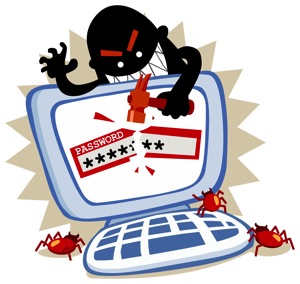A tale of bad passwords and nude photos.
 The Internet is on fire with discussions of the recent release of stolen nude photos of over 100 female celebrities. This is a massive invasion of their privacy, and it says something sad about our society that there is an active market for such pictures. While this particular attack was against the famous, most of us have information in the cloud that we would like to stay secret.
The Internet is on fire with discussions of the recent release of stolen nude photos of over 100 female celebrities. This is a massive invasion of their privacy, and it says something sad about our society that there is an active market for such pictures. While this particular attack was against the famous, most of us have information in the cloud that we would like to stay secret.
While there is not a definitive explanation of the breach the current consensus is that it was probably caused by a vulnerability in Apple’s “Find My iPhone” feature. Apparently the API interface to this service did not check for multiple password failures, a standard security practice. This allowed attackers to test effectively unlimited numbers of passwords for each of the accounts they wanted to access.
Because most people use relatively weak passwords, this attack is quite effective. Once they gained access to the accounts, they could sync down photos or any other information stored in iCloud.
Of course, the first rule of secrecy is: If it does not exist, it can’t be discovered.
If you do want to create something that you would be pained to see released publicly, then make sure you keep close control of it. Store it locally, and encrypted.
Wherever you keep it, make sure it has a strong password. Advice for strong passwords has changed over time because of the increasing speed of computers. It used to be that fancy pneumonics would do the trick but now the fundamental truth is: if you can remember it, it is too weak.
This is particularly true because you need to be using completely different passwords for every website. Changing a good password in a simple obvious way for every website is obvious. It might prevent brute force attacks but if some other attack gives access to your password, the attacker will be able to easily guess your password on all other websites.
You need to be using a password manager like 1Password (Mac), LastPass, Dashlane, etc. Let the password manager generate your passwords for you. This is what a good password should look like: wL?7mpEyfpqs#kt9ZKVvR
Obviously I am never going to remember that, but I don’t try. I have one good password that I have taken the time to memorize, and it unlocks the password manager which has everything else.
UPDATE: There appears to be some question about whether this vulnerability is actually to blame.